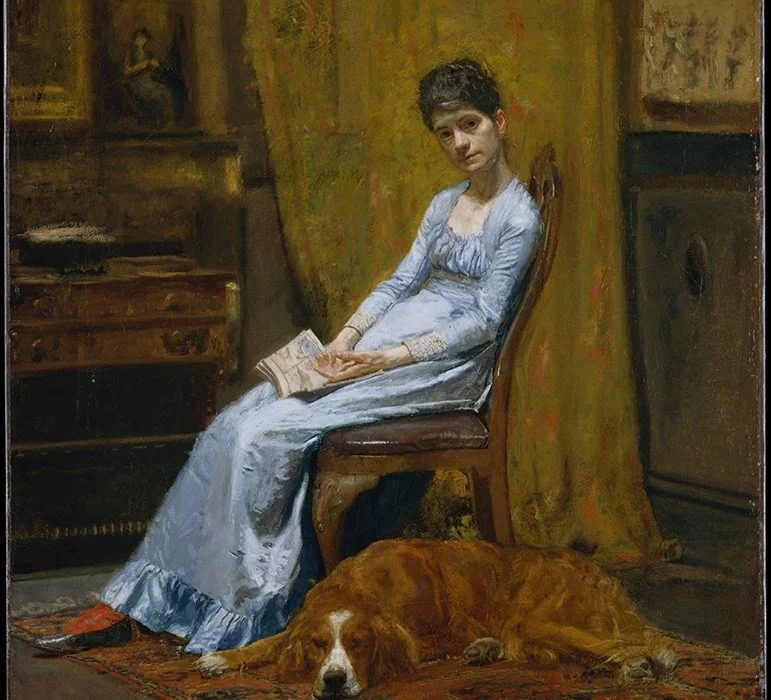Relationships • Mature Love
How We Can Eventually Move on From Heartbreak
At the core of heartbreak lies a particularly cruel belief: the belief in our departed lover’s profound uniqueness. In the wake of our abandonment, we are visited by the certainty that our companion can and never will be replicated. It was precisely their way of tucking in their sleeves, of leaning forward in a restaurant, of navigating a train station, of closing their eyes in a kiss that made them who they were. And therefore, our grief can – despite the many inconveniences – fairly have no bounds. It is one of the defining emotional tasks of healing after a breakup to confront this belief and slowly, patiently, dismantle it.

When hearing our laments, well-meaning friends may – with great kindness – begin to point out what appears, from the outside, to be an almost obvious truth: that there are eight billion people on the planet and that the departed lover cannot, therefore, be fundamentally irreplaceable. That we must be exaggerating the difference between one person and another. That we must be guilty of turning a standard human into an irreplaceable deity.
Yet such kindly arguments hold no more force than a parent’s insistence to a young child that their favourite teddy, Nonou, forgotten in the crack between seats on a transatlantic flight, can be lightly replaced with a visit to a toyshop. Whatever the fine reasoning, we return to our sodden pillow with renewed sorrow.
What We Truly Loved
To rescue ourselves, it may eventually be necessary to take on that driest of disciplines: philosophy – and in particular, the branch of it that considers the foundations of personal identity. We should dare to ask ourselves a peculiar-sounding question: what was it that we loved in our departed lover? At first, the enquiry may make little sense. We didn’t love anything as such – we just loved them: Roisin or Mateo, Keiko or Rajesh, Ximena or Yusuf, Layla and Santiago … There weren’t any reasons, there was only specialness, and now there is pain.
But we should stick at the question and, through our tears, try to tabulate certain ideas in response. What begins to emerge is that – in truth – our affection can’t ultimately have been just about their existence. It must have focused on certain qualities we perceived in them. When we reflect closely on why we loved them as we did, it was because of qualities: Roison’s tenderness, Mateo’s playfulness, Keiko’s sense of irony. In other words, though it seemed as if we loved a person purely and simply for themselves, what we really loved were a raft of qualities they harboured: their way of listening without judgment, their ability to find humour in mundane moments, their persistence in the face of obstacles, their curiosity about strangers’ stories, their talent for finding beauty in ordinary places.
Healing After a Breakup With a Qualities-Based Understanding of Love
Philosophy invites us to move from a person-based understanding of love to a qualities-based one; to shift from thinking that what made someone lovable was that they were Valentina or Kenji, Noor or Kwabena, to recognising that we loved them because they had a strong feeling of fairness or a dark sense of humour, an ease around children or a sensitivity to poetry
We might think this an arcane and incidental distinction – hardly worth the effort of making it. But it opens up an avenue for eventual recovery. For unlike a love of personhood, which is necessarily a singular phenomenon, a love of qualities of character exists free of any specific individual. Qualities, by their nature, are transpersonal – they are found across the species. They are the birthright of all humanity. Our lover borrowed them, made a temporary space for them, but they could not have created them or claimed a monopoly on them. They do not own justice or poetry; they do not have an eternal claim on humour or tolerance.
It can be a particular worry that, by starting up a new relationship, we will end up being disloyal to our ex. But according to this thesis, we can be properly loyal to a person we adored not by continuing to love them (when they no longer want us), but by continuing to love what we loved in them, in new people. We can shift our loyalty from the person’s name to the loveable qualities beneath their name – which we can search for and honour in a variety of alternative candidates, thereby preserving the basis of our affection despite the unwanted departure. By understanding more clearly why we loved them, we can loosen our obsessive focus on them. Our ex becomes less uniquely adorable once we become clearer about what we adored about being with them. We are not – by moving on from them – being asked to abandon what we loved. We’re being encouraged to locate those cherished traits in new domains.
When we say we miss them, it is, in the end, something narrower we are nostalgic for: good qualities. It is tenderness, worldliness, conviviality or open-mindedness we loved – first and foremost – not, inherently, the bodily envelope in which these qualities came to rest. We encountered these things in them and with them, and so it’s natural to assume, at first, that losing the person means losing everything linked to them. It’s true that we’ll never meet another person exactly like the lover again. They are unique. But the good things we met in and through them are general. They exist elsewhere – not all bundled up in one person in quite the same way, but distributed more widely across the human race.
Other versions of such smiles exist. Other versions of their sophisticated, slightly cynical take on life. Other capacities to make ambitious weekend plans or laugh at pomposity. In losing one person, we can’t logically have forever lost contact with the elements that made them valuable – elements that continue to exist, scattered throughout humanity, waiting for our curiosity and courage to re-emerge. Healing after a breakup involves this exact kind of shift: from the irreplaceable to the universal. We may have lost a person, but we haven’t lost – and don’t ever need to lose – what made them precious.


























